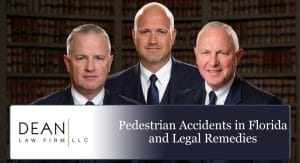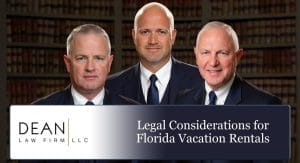## Protecting Your Florida Home from Creditor Actions
When it comes to safeguarding your home, understanding your legal options within Florida is crucial. Home Protection Florida involves a layered approach to shielding your personal residence from creditors. Due to various financial challenges in life—such as job loss, health issues, or even poor investments—homeowners may find themselves facing creditor claims. By understanding the legal mechanisms available, you can better defend your most valuable asset.
Protected under Florida law, your home is often your primary line of defense against creditors. Certain exemptions and legal protections can prevent creditors from seizing your property, making it essential to grasp this complex landscape. With the right information and strategic actions, you can enhance the security of your home against potential financial threats.
## Understanding Home Protection Florida
Home Protection Florida encompasses various legal avenues and exemptions that specifically safeguard homeowners within the state. The Florida Homestead Exemption is one of the most significant aspects of this protection, allowing homeowners to exempt a portion of their property’s value from taxes and creditors. This legal provision is crucial for anyone wanting to defend their home against judgments, foreclosures, or bankruptcies.
The Florida Homestead Law not only secures financial relief from property taxes but also creates a barrier preventing creditors from seizing the home in most circumstances. In the event of financial hardship, your primary residence can remain untouched, giving you peace of mind while you navigate financial difficulties. This law ultimately encourages homeownership and fosters a more stable community.
Understanding these protections requires an awareness of the specific rules and regulations that govern them. For example, it’s essential to determine if your home qualifies as a homestead and familiarize yourself with the exemptions that apply. The full implications of Home Protection Florida are best understood through legal counsel, ensuring your protection is maximized.
## The Relevance of Home Protection in Today’s Financial Landscape
The need for home protection in Florida is more pressing than ever in today’s volatile economic environment. With rising costs of living, fluctuating job markets, and the constant threat of unforeseen emergencies, individuals and families can face significant financial hardships. This makes understanding how to protect your home against creditors a vital part of financial planning.
Additionally, the COVID-19 pandemic brought about widespread economic uncertainty, causing numerous Florida residents to grapple with unpaid debts and loss of income. This stress has made it essential for homeowners to understand their rights and the specific protections available to them under Florida law. Knowing the legal frameworks in place can significantly reduce anxiety in challenging times, providing homeowners with tools to safeguard their assets.
Engaging in proactive asset protection strategies can also limit the likelihood of facing foreclosure or creditor claims in the future. Being informed about your options leads to making sound financial choices that prioritize home protection while navigating potential risks.
## Legal Framework and Context for Protecting Your Home in Florida
The legal landscape surrounding Home Protection Florida is rife with considerations regarding exemptions and asset protection laws. Florida Statute 732.401 protects the family home from unsecured creditors. This law stipulates that primary residences cannot be seized for debts incurred after the purchase or covenant of the property, which provides a significant layer of protection.
Moreover, Florida’s legal system recognizes tenant rights, including protections against wrongful evictions and landlord claims. Understanding these laws can empower homeowners and renters alike to stand firm in disputes, ensuring their housing remains secure. This framework operates to maintain a sense of stability within households, particularly during times of economic distress.
Consulting attorneys who specialize in Florida property law can provide insights into additional avenues of protection, including tenancy by the entirety for married couples. This can prevent creditors from claiming an individual’s share of a jointly-held home, further safeguarding the family residence.
## Real-Life Scenarios of Home Protection in Florida
There are numerous cases in Florida where homeowners faced potential loss of property due to creditor claims but successfully navigated these challenges through the applicable legal protections. One such case involved a homeowner being sued for credit card debt. By filing for a homestead exemption in Florida, the claimant was able to protect their primary residence and avoid losing their home, illustrating how effective knowledge and application of the law can be.
Another scenario involved a couple facing foreclosure due to unforeseen medical expenses that became overwhelming. They discovered the legal provisions surrounding their homestead status and successfully applied for exemptions that not only lowered their tax burden but also protected them during the bankruptcy proceedings. This situation demonstrates the importance of seeking legal guidance to maximize available protections.
These examples provide a clear picture of the importance of understanding how Florida laws can protect homeowners from creditors. They show that with the right legal knowledge and strategy, it is possible to retain ownership of your home despite financial difficulties.
## Practical Steps to Safeguard Your Home
To effectively protect your Florida home from creditors, there are several proactive measures you can take. The first step involves making sure your property qualifies as a homestead. This includes ensuring that the home is your primary residence and that you have officially declared it as such through local property appraiser offices. By doing this, you can begin to take advantage of the available exemptions under Florida law.
It is also prudent to maintain detailed records of all financial transactions and document your status. Maintaining accurate financial records can prove vital should creditors seek legal actions against you. In addition, creating a protection plan by establishing a trust can shield your home from creditors. While creating a trust may require legal assistance, it is an effective way to provide an extra layer of protection when it comes to safeguarding assets.
Lastly, regular consultations with financial advisors and legal professionals can keep you aware of changing laws and regulations that may impact your home protection strategy. By staying informed, you can adapt your approach, avoid pitfalls, and implement the best practices for safeguarding your home.
## Common Pitfalls in Home Protection Strategies
While there are many effective strategies for protecting your Florida home, there are pitfalls that homeowners should avoid to ensure optimal protection. One common mistake is failing to properly declare homestead status, which can inadvertently omit the homeowner from significant protections under Florida law. It is crucial to file the necessary paperwork to ensure that your property qualifies and thereby secures the exemptions available.
Another frequent error involves relying too heavily on verbal agreements instead of putting important protective measures in writing. For instance, discussing asset protection strategies without formal documentation can lead to misunderstandings and disputes later on. Ensuring that all protective strategies, including trusts and wills, are properly documented helps preserve your rights and provides clarity in case of future legal challenges.
Lastly, neglecting to consult with legal professionals can be a costly mistake. Many homeowners may attempt to navigate creditor issues without legal guidance, exposing themselves to risks they may not fully understand. Consulting an attorney who specializes in property law can help clarify the statute’s intricacies and ensure that all protections are in place, ultimately securing your home against creditors.
## When to Seek Legal Advice
Knowing when to consult with an attorney about home protection in Florida is vital for safeguarding your property. If you are facing potential lawsuits or creditor claims, reaching out for legal counsel immediately can assist in understanding your options and the legal framework protecting your home. Attorneys specializing in creditor law can provide invaluable insight into the complexities of bankruptcy, property exemption laws, and litigation.
Moreover, engaging with legal professionals prior to financial difficulties can also be beneficial. Whether you are contemplating a significant financial decision or simply want to understand your current asset protection strategies, proactive legal advice can help you establish robust defenses in advance of any potential claims.
In the realm of creditor challenges, timely legal intervention often determines the outcome of the situation. Seeking assistance sooner rather than later can empower you to leverage Florida’s protective statutes effectively and make educated decisions about your financial future.
## The Advantages of Legal Representation
Hiring legal representation offers a myriad of advantages when it comes to protecting your home from creditors in Florida. One primary benefit is the attorney’s comprehension of complex laws and regulations surrounding creditor claims and homestead protections. With their focused knowledge, lawyers can navigate nuances that may elude the average homeowner, ensuring that all possible protections are maximized.
Legal professionals can also aid in the proper filing of necessary documentation to protect your home. The process of declaring homestead status requires accuracy and attention to detail. Missing deadlines or making administrative errors can expose homeowners to risks that could have been easily avoided. Legal representation aids in ensuring that all paperwork is completed correctly and submitted timely.
Additionally, having legal representation can streamline communication with creditors. An attorney can negotiate on your behalf, potentially reducing the stress of direct interactions and pressures from creditors. This creates a buffer while allowing you to focus on resolving financial issues without the burden of constant harassment from debt collectors or legal representatives of creditors.
## How Dean Law Firm Can Support Your Home Protection Needs
Dean Law Firm specializes in helping clients understand and implement effective strategies for home protection across Florida. Their deep knowledge of the state’s laws governing creditor actions and residential protections positions them as a trusted partner for homeowners. The firm provides tailored legal counsel that considers the unique circumstances of each client, ensuring that the best possible defenses are in place.
With a customer-focused approach, Dean Law Firm emphasizes the importance of education in the legal process. They prepare clients not only to defend their homes but also to equip them with the knowledge required for future financial decision-making. This proactive education allows homeowners to feel more confident in their rights and options when it comes to creditor interactions.
Furthermore, the Dean Law Firm’s commitment to ongoing support ensures that clients are not left in the dark. They offer comprehensive resources and continuous updates on changes in laws that could affect home protection strategies. This level of support emphasizes their dedication to client success, making them a prime choice for anyone seeking assistance in protecting their home.





